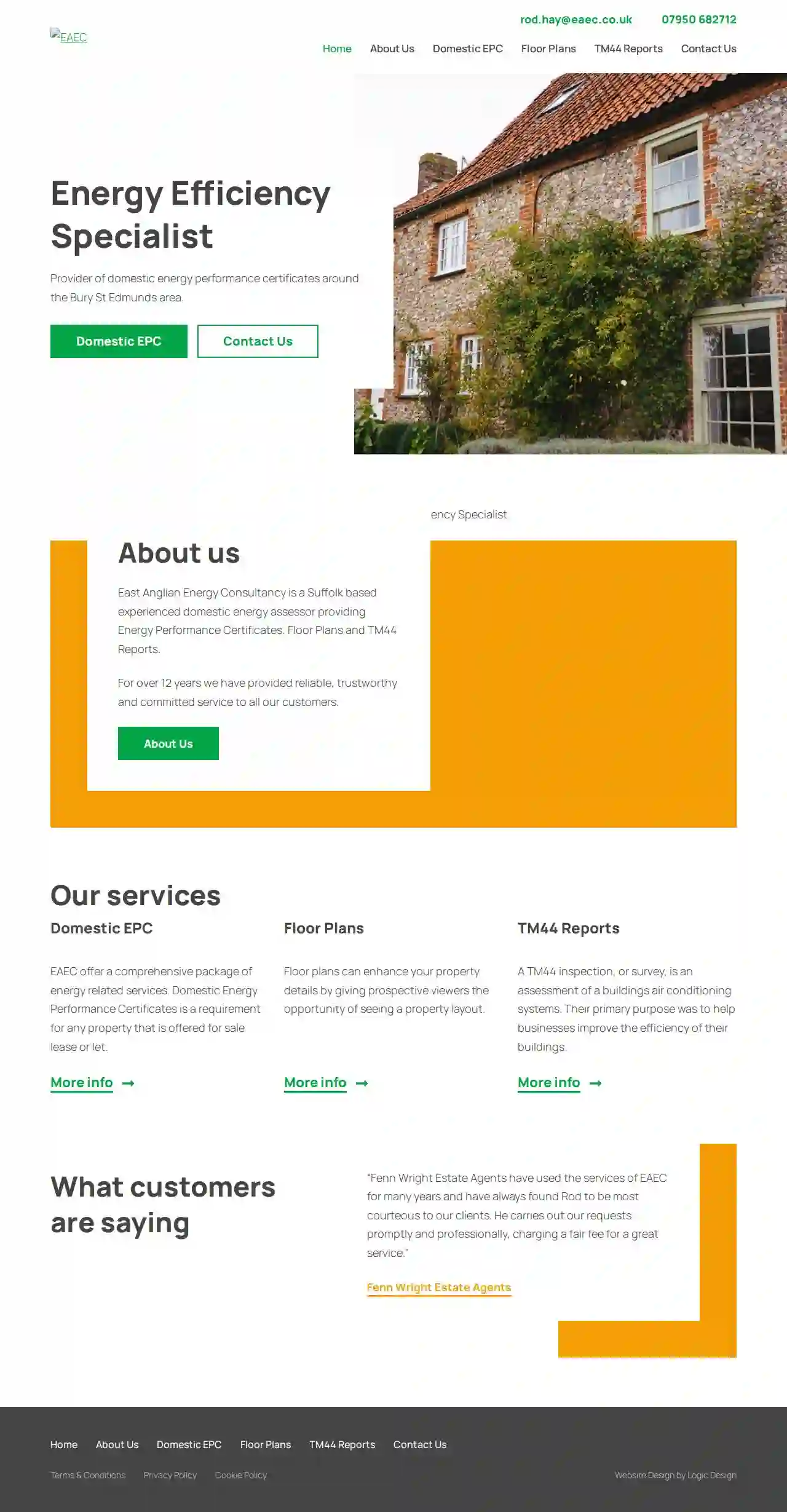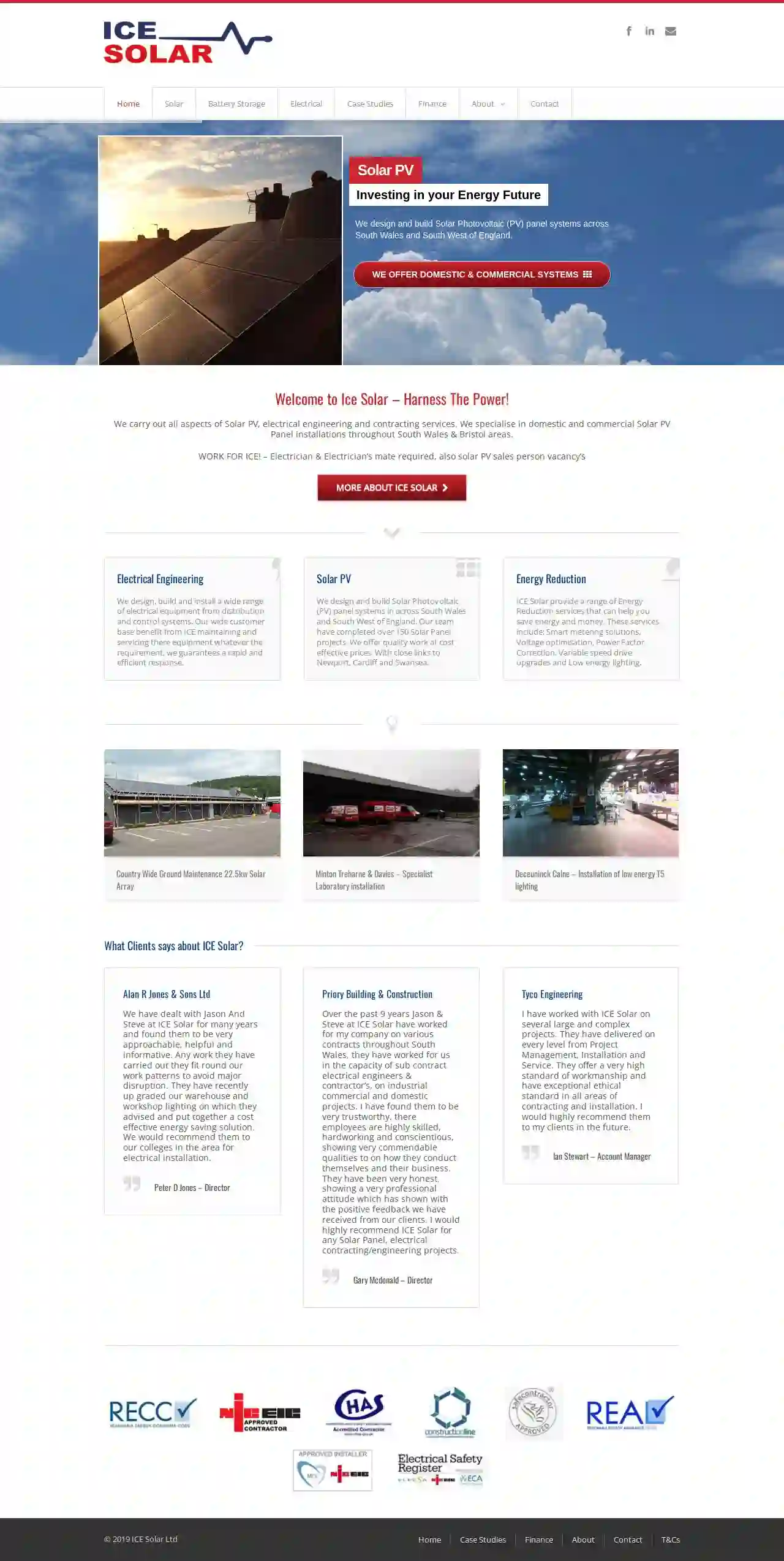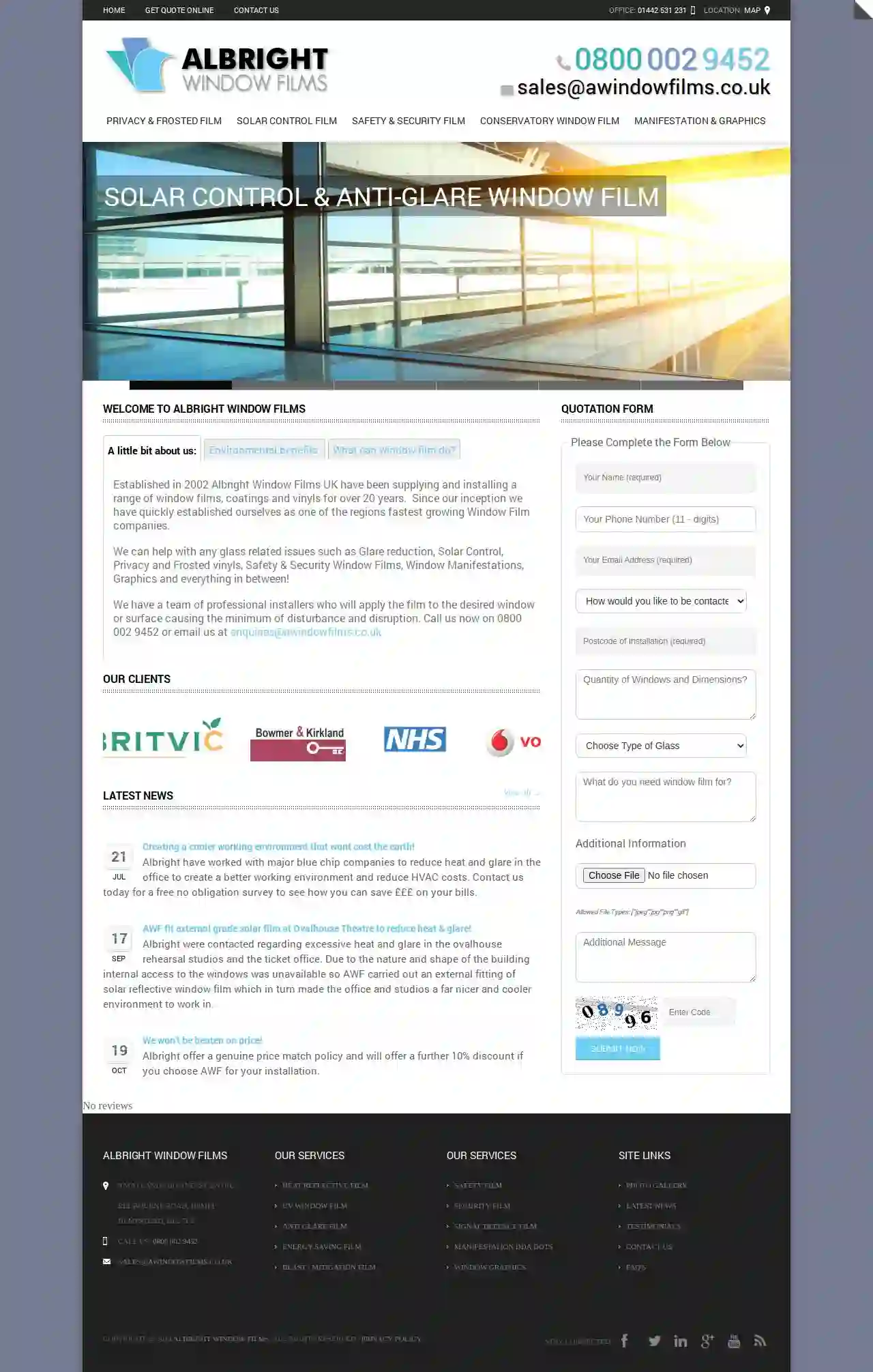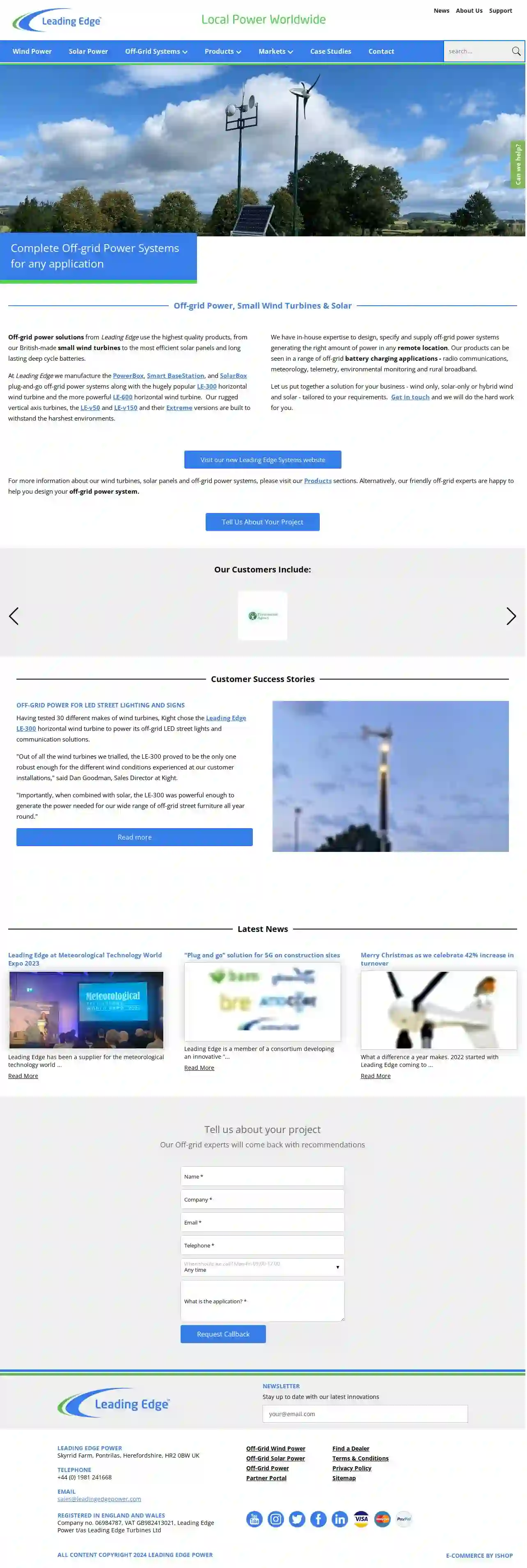Solar Installers Cheadle Hulme
Find Solar Company in Cheadle Hulme
Receive up to 3 Solar Company quotes for your project today! Compare profiles, reviews, accreditations, portfolio, etc... and choose the best offer.

Real Power
Blackburn, GBReal Power is a leading provider of solar panels, heat pumps, and battery storage solutions. We are committed to helping our customers save money on their energy bills and reduce their carbon footprint. Our team of experts will work with you to design and install a system that meets your specific needs. We offer a wide range of products and services, including: Solar Panels Heat Pumps Battery Storage Systems Grants and Support We are a fully accredited and insured company, and we have a proven track record of success. Contact us today to learn more about how we can help you save money on your energy bills.
- Services
- Why Us?
- Accreditations
- Gallery
Get Quote
East Anglian Energy Consultancy
Sale, GBEast Anglian Energy Consultancy is a Suffolk based experienced domestic energy assessor providing Energy Performance Certificates, Floor Plans and TM44 Reports. For over 12 years we have provided reliable, trustworthy and committed service to all our customers. EAEC offer a comprehensive package of energy related services. Domestic Energy Performance Certificates is a requirement for any property that is offered for sale lease or let.
- Services
- Why Us?
- Our Team
- Testimonials
- Gallery
Get Quote
Lanman Solar
531 reviewsSale, GBWelcome to Lanman Solar, providing solar energy solutions for East Anglia. We're at the forefront of the renewable energy revolution, delivering world-class residential and commercial solar panel system services to homes and businesses across Suffolk, Norfolk, Essex, Hertfordshire, and Cambridgeshire. Whether you want to reduce your energy bills, cut your carbon footprint, or take your property value to the next level, there’s no better team to call. Get your free quote today! Call us direct on: 01473 934 503 or send us your details and we can call you. Thank you! Your submission has been received! Oops! Something went wrong while submitting the form. Lanman Solar is a fully accredited and accredited solar panel company, providing a comprehensive range of solar services, from customised solar panel installations and solar battery storage systems to regular maintenance for optimal performance. We’re committed to delivering sustainable energy solutions to the highest possible standard – complete with five-star customer service and transparent pricing. From initial in-person surveys to our 2 year workmanship warranty, we’re in it for the long haul.
- Services
- Why Us?
- Accreditations
- Our Team
- Testimonials
- Gallery
Get Quote
ICE Solar
51 reviewsBury, GBICE Solar LTD is committed to providing a full range of electrical services for clients in the industrial and commercial sectors. We carry out all aspects of electrical engineering, contracting services and Solar PV Panel installations. ICE Solar was originally founded in 2011 by Jason Pumford and Steve Arnold with the intention of offering electrical and automation engineering services to the commercial, domestic and industrial sectors. We design, build and install a wide range of electrical equipment from distribution and control systems. Our wide customer base benefit from ICE maintaining and servicing there equipment whatever the requirement, we guarantees a rapid and efficient response. We design and build Solar Photovoltaic (PV) panel systems in across South Wales and South West of England. Our team have completed over 150 Solar Panel projects. We offer quality work at cost effective prices. With close links to Newport, Cardiff and Swansea.
- Services
- Why Us?
- Our Team
- Testimonials
- Gallery
Get Quote
Albright Window Films UK
548 reviewsRedbourne Road, 9 Maylands Business Centre, Hemel Hempstead, hp2 7es, GBEstablished in 2002 Albright Window Films UK have been supplying and installing a range of window films, coatings and vinyls for over 20 years. Since our inception we have quickly established ourselves as one of the regions fastest growing Window Film companies. We can help with any glass related issues such as Glare reduction, Solar Control, Privacy and Frosted vinyls, Safety & Security Window Films, Window Manifestations, Graphics and everything in between! We have a team of professional installers who will apply the film to the desired window or surface causing the minimum of disturbance and disruption. Call us now on 0800 002 9452 or email us at [email protected] With new Government initiatives & EU Directives we are all working towards reducing our carbon emissions and cutting our energy consumption and bill (HVACS). Window Film is carbon neutral and offers a far more cost effective way to moderate temperatures during the winter and summer without the use of costly air conditioning or heating devices. Ask one of our representatives about our Energy Saving Surveys which shows you how we can help reduce your HVAC costs on 0800 002 9452 or [email protected] Solar Control Films or Anti-Glare films reduce heat gain and glare by as much as 80% and also eliminates harmful UV rays whilst significantly reducing your cooling costs and carbon emissions. Safety Films are clear in appearance so there is no alteration to your windows but the containment of shattered glass offers optimum protection and ultimate glass safety. Security & bomb blast films provide your glazing with a high level of protection in the event of explosions, impact or forced entry. Privacy and Frosted Films are perfect when you are looking to create better privacy at home or in the office.
- Services
- Why Us?
- Gallery
Get Quote
Green Energy
49 Ferguson Way, Ipswich, IP5 2FZ, GBGreen Energy Ipswich is a solar panel and EV charging solutions provider based in Ipswich, Suffolk. We offer a range of services, including solar as a service, solar PV systems, energy manufacture, solar technology, and solar equipment. Our team of experts is dedicated to providing top-quality installations and maintenance of solar energy systems and EV charging ports. We believe that solar energy is the most affordable energy source on the planet and can make a significant impact on reducing our carbon footprint. With over 350 completed projects and 325 solar panels installed, we have a proven track record of delivering high-quality solutions to our clients.
- Services
- Why Us?
- Accreditations
- Our Team
- Gallery
Get Quote
Contact Solar
4.9555 reviewsUnit 15 Matrix Way, Buckshaw Village, Preston, PR7 7ND, GBAt Contact Solar, we are a leading national company specializing in solar panel and battery storage installations across the UK. We pride ourselves on providing exceptional customer service, from our no-pressure sales approach to our dedicated in-house technical support team. Our mission is to empower our customers with the knowledge and solutions they need to make informed decisions about their solar energy investments. We understand that choosing a solar panel system is a significant decision, and we are committed to guiding you every step of the way. Our team of experts takes the time to listen to your individual needs and design a customized system that maximizes your energy savings and return on investment. We work with trusted manufacturers like Sunsynk, Jinko, and JA Solar to offer high-quality products backed by extended warranties. We are proud to be a No.1 rated company on both Trustpilot and Google, with over 10 years of experience in the industry. Contact us today for a free quote and let us help you harness the power of the sun!
- Services
- Why Us?
- Accreditations
- Gallery
Get Quote
Volt Electrical Co.
541 reviewsCharnwood New House, Peppers Wash Lane, Framlingham, Woodbridge, IP13 9PT, GBVolt Electrical Co. is your premier source for electrical excellence and solar innovation in East Anglia. We are dedicated to providing superior electrical installations and unparalleled service to our clients. From initial consultation to project completion, we cover all aspects of your electrical needs with expertise and precision. Our team consists of fully qualified and insured engineers with extensive experience in delivering high-quality electrical solutions for a range of projects. We offer a comprehensive range of services tailored for both residential and commercial needs, including electrical installations, CCTV systems, smart home technologies, and more. We also specialize in solar PV installation services, designed to reduce your carbon footprint and energy costs. We are registered with the NICEIC under the electrical competency scheme, adhering to the highest standards of quality and safety.
- Services
- Why Us?
- Accreditations
- Our Team
- Testimonials
- Gallery
Get Quote
Renergy Innovation Ltd
51 reviewsNewport Market, High Street, Office M1.03, Newport, NP20 1FX, GBRenergy Innovation is a pioneering company located in Newport, UK, specializing in solar PV design and installation. We support making your idea a reality. We introduce a new green gadget for domestic and commercial use. We are committed to achieving net zero emissions and helping our clients transition to clean energy solutions.
- Services
- Why Us?
- Our Team
- Gallery
Get Quote
Leading Edge Power
51 reviewsSkyrrid Farm, Pontrilas, HR2 0BW, GBLeading Edge Power is a company specializing in complete off-grid power systems for a variety of applications, including remote communications, CCTV, lighting, and climate change research. They are known for their proven reliability in harsh environments, with a focus on British-made small wind turbines, efficient solar panels, and long-lasting deep-cycle batteries. Their product range includes the PowerBox, Smart BaseStation, and SolarBox plug-and-play off-grid power systems, as well as the LE-300 and LE-600 horizontal wind turbines and the LE-v50 and LE-v150 vertical axis turbines. Leading Edge Power also offers in-house expertise in designing and supplying bespoke off-grid power systems tailored to specific project needs. Their solutions are used in diverse applications such as radio communications, meteorology, telemetry, environmental monitoring, and rural broadband.
- Services
- Why Us?
- Accreditations
- Our Team
- Testimonials
- Gallery
Get Quote
Over 3,485+ Solar Installers on our directory
Our solar companies operate in Cheadle Hulme and surrounding areas!
SolarCompaniesHub has curated and vetted Top Solar Installers arround Cheadle Hulme. Find a top & reliable contractor today.
Frequently Asked Questions About Solar Installers
- Solar Panel Warranty: From the panel manufacturer, typically covering defects in materials and workmanship for 10-25 years. Some manufacturers offer performance guarantees, ensuring a certain level of energy output over time.
- Solar Installation Warranty: From the solar installer, covering the quality of the installation work for 1-10 years. This warranty protects you from leaks, faulty wiring, or other issues caused by improper installation.
- String Inverters: Connect multiple panels in a series (a 'string'). A cost-effective option for simple systems, but a single panel issue can affect the entire string.
- Microinverters: Attach to each individual solar panel, maximizing energy production even if some panels are shaded. They are more expensive but offer greater efficiency and monitoring capabilities.
- Power Optimizers: Similar to microinverters, but less expensive. They optimize the output of each panel and provide individual panel monitoring, but a central inverter is still required.
- Hybrid Inverters: Combine a solar inverter with a battery charge controller, allowing for seamless integration of battery storage.
Do I need planning permission to install solar panels in UK?
What kind of warranty should I expect for my solar panel system?
What are the different types of solar inverters?
What is net metering, and how does it work?
Do I need planning permission to install solar panels in UK?
What kind of warranty should I expect for my solar panel system?
- Solar Panel Warranty: From the panel manufacturer, typically covering defects in materials and workmanship for 10-25 years. Some manufacturers offer performance guarantees, ensuring a certain level of energy output over time.
- Solar Installation Warranty: From the solar installer, covering the quality of the installation work for 1-10 years. This warranty protects you from leaks, faulty wiring, or other issues caused by improper installation.
What are the different types of solar inverters?
- String Inverters: Connect multiple panels in a series (a 'string'). A cost-effective option for simple systems, but a single panel issue can affect the entire string.
- Microinverters: Attach to each individual solar panel, maximizing energy production even if some panels are shaded. They are more expensive but offer greater efficiency and monitoring capabilities.
- Power Optimizers: Similar to microinverters, but less expensive. They optimize the output of each panel and provide individual panel monitoring, but a central inverter is still required.
- Hybrid Inverters: Combine a solar inverter with a battery charge controller, allowing for seamless integration of battery storage.